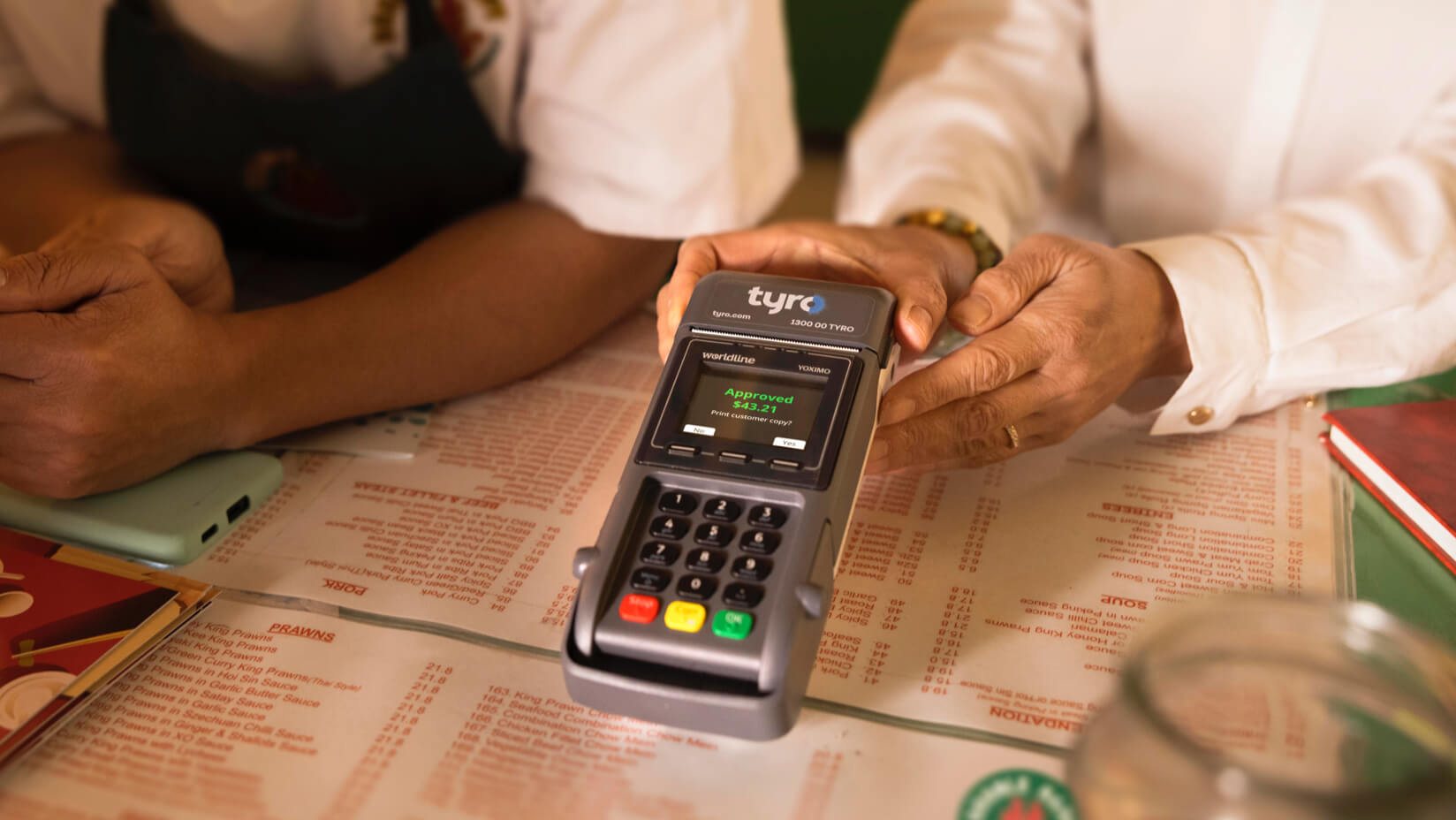Your introduction to EFTPOS for business
An efficient EFTPOS solution can help your business make more sales. But how do you know which payment solution is right for your business? Learn how EFTPOS transactions work and how to use the technology to benefit both your customers and your business.

Is EFTPOS a good fit for your business?
As a business, your payment methods are an important part of managing your cash flow and meeting your customer's needs. In Australia, one of the most common payment methods is EFTPOS. Here, we’ll explain how EFTPOS transactions work and how to use the technology to help increase your revenue and meet customer expectations.
What is EFTPOS?
EFTPOS stands for Electronic Funds Transfer at Point of Sale.
First introduced to the Australian market in 1980s, EFTPOS is now the most common type of payment method used when paying for goods and services in Australia.
How do EFTPOS transactions work?
With EFTPOS, funds are transferred from a customer’s account directly into your business account. The EFTPOS provider sends a request to the bank account of the person making a payment to make sure the funds are available. This process uses encrypted data, which helps both businesses and customers transact with peace of mind.
How EFTPOS meets customers’ needs
According to Tyro and as reported by the RBA, paying by EFTPOS is now the preferred way to pay in Australia. And due to the simplicity of paying using EFTPOS, more and more people are opting not to carry cash on their person at all.
These customers will likely expect to able to pay by EFTPOS when they engage your business. So, to meet your customers’ needs, it’s important to accommodate preferred payment methods when deciding how you’ll accept payments.
When you adopt EFTPOS as a payment solution, you’re able to offer your customers the secure, accessible, and contactless payment methods they’re looking for. Efficient payment solutions such as EFTPOS can also help improve the customer experience you provide, helping to encourage repeat business.
How can EFTPOS help my business?
Investing in payment technologies that support your business can help give you a competitive edge. Today, there’s a range of different EFTPOS providers and solutions to choose from, depending on your needs.
Countertop EFTPOS machines, for example, are well suited to businesses that require a fast and fixed payment system. While mobile EFTPOS devices benefit businesses that require extra flexibility and mobility.
Key benefits of EFTPOS for business
- EFTPOS uses encrypted data to perform transactions. This can help protect your business from security breaches.
- As there’s no physical handover and less safekeeping of cash, the risk of human error or theft is minimised.
- EFTPOS software solutions allow you to keep track of purchases and can help resolve any discrepancies that may have occurred.
- You can use your EFTPOS transaction history to gain insight and analysis about your business. This can help you make informed decisions, identify trends and learn about your customers.
- Access funds quicker with improved cash flow. With EFTPOS you can reduce waiting times associated with invoices being processed and cheques being cleared.
How do EFTPOS merchant fees work?
When you adopt EFTPOS as a payment solution, you can expect to incur merchant fees issued by your service provider. A merchant fee is basically any fee associated with processing payments made by debit and credit cards.
Merchant fees differ depending on a number of factors, including:
- The type of card the customer uses to pay with (such as debit or credit)
- Which EFTPOS service provider you use (for example, Tyro)
- The card network that the transaction is processed on (for example Visa or Mastercard).
While it’s true that merchant fees can sometimes add up, there are steps you can take to help lessen the impact these fees have on your profit.
Tips to help your business save on merchant fees
- Factor in merchant fees when pricing your products and services. By understanding which cards are commonly used and typical transaction fees, you can estimate the merchant costs you’re likely to incur. You can then use this information to determine what you’ll charge.
- Least-cost routing is another method that aims to minimise merchant fees by processing eligible transactions via the cheapest available network. When a buyer taps their card on an EFTPOS machine enabled for least-cost routing it automatically defaults to the cheapest network.
- Find a merchant fee pricing model that suits your business best. Once you understand how fees work, you can better understand if you’re paying too much for your EFTPOS solution. Take this opportunity to do your research and start saving.
Can Telstra help my business find an EFTPOS solution?
Yes, we can. To help make accepting payments simpler for you, we’ve partnered with Tyro.
Tyro EFTPOS with Telstra offers a simple solution designed for businesses. Speak with us about Tyro’s EFTPOS machines so we can help find a payment solution that’s right for you.
Insights to power your business today and tomorrow
Download your Tech State of Play report to help propel your business further through technology.
Want fast, simple, and innovative EFTPOS for your business?
Make your first $15K of sales fee-free, plus access flat-rate payments with no lock-in contract, when you take up Tyro with Telstra.
For small business customers new to Tyro, referred by Telstra. Some payment types and transactions excluded. Offer subject to contract and change. Details, T&Cs: Telstra.com.au/tyro
Things you need to know
This offer applies to new Tyro customers only but does not apply to eCommerce transactions. Additional charges apply for Diners Club and Moto transactions (Tyro Mobile and CounterTop). UnionPay, Alipay, MOTO and Diners Club not accepted on Tyro Go.



